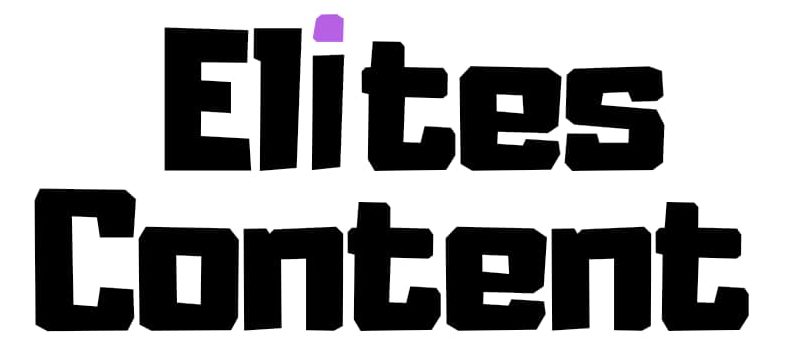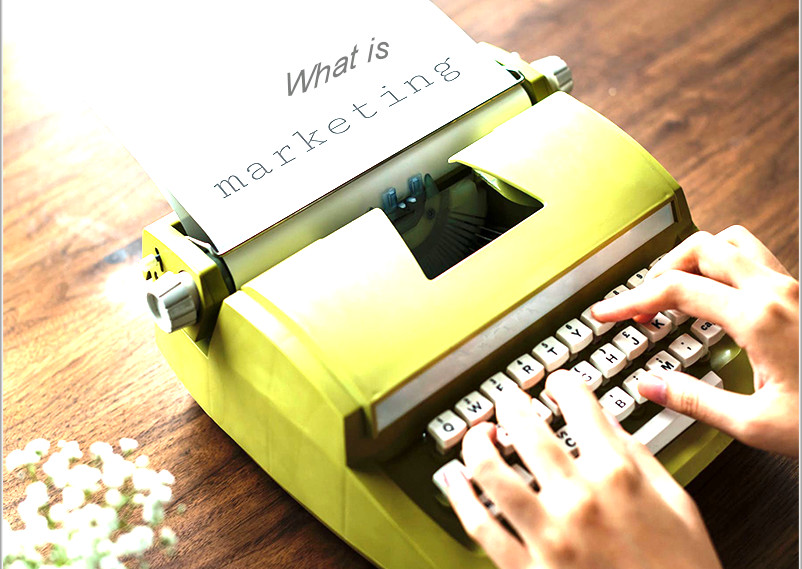Having a clear understanding of the definition of marketing is essential for anyone who is interested in any marketing related activity.
Over the years, I wondered why there is no one way to the definition of marketing. Then, I found that marketing is like moving airplane. knowing its destination is never by a simple guess work.
So I decided to take a peep into the nature of marketing which established the fact that marketing does not have a specific and static definition due to its dynamic nature. The definition of marketing is controversial as there is no one best definition. rather, they all point towards one aspect of marketing.
You can read full resource on the nature of marketing. Thank me later.
Don’t be surprised that a lot of people practice marketing but still don’t know how it can be defined.
Yes! it happened to me too.
I got embarrassed some years back when my kid sister asked me to define marketing. It took me some minutes to stumble on what to say.
Funny right? But i don’t want you to have such experiences. So, I provided you with 101 definitions of Marketing as defined by different marketing practitioners and scholars.
These definitions where gotten via interview and review of online and offline textbooks and articles.
But before then, see how I defined marketing:
Definition of marketing
Marketing is the process of providing and exchanging value that is social-friendly, leading to satisfaction and positive impression about a brand to ensure a profitable reward
The definition above has some basic underlined terms that require explanation in order to aid your in-debt understanding. These key terms are also common among other definitions of marketing you will see later.
Process: This include the research and management efforts put in place to get things done.
Exchange: Transfer of item for mutual benefits.
Value: This refers to very useful products (ideas, items, services, goods, etc) that are of great benefits to a consumer/buyer.
Social-Friendly: Taking cognizance of society’s well-being. It entails that marketing makes value available with the consideration of its effect on the society at large.
Satisfaction: This means a delightful and happy state of a consumer after consuming a particular product. It is a point where a consumer’s expectations are met or exceeded.
Positive Impression: This entails increased worth of a person, product or organization in the mind of the consumers.
Brand: This is the totality of who the consumers believe a firm is. It could also be a part of organization, products or anything one is performing marketing functions for.
Profitable Reward: Profitable reward refers to financial and non financial benefits over a period of time.
Now let’s make a substitution to see what we got:
Marketing is the process of providing and transferring of useful products that contributes to the society’s well being, which leads to delightfulness and increase in the worth of a person or organization to ensure financial and non financial benefits.
101 Definitions of Marketing
1. Marketing is the “activity, set of institutions, and processes for creating, communicating, delivering, and exchanging offerings that have value for customers, clients, partners, and society at large” American Marketing Association (AMA) 2013
2. Marketing is a “societal and managerial process by which individuals and organizations obtain what they need and want through creating and exchanging value with others.” Kotler & Armstrong, 2010
3. Marketing is the “combination of mental and physical activities to produce goods and services for exchange in order to satisfy individual or organizational needs.” Ozuru, H. N. Former Asst. Director, University of Port Harcourt Business school (UPBS)
4. Marketing is the “act of developing an engaging relationship with every single human being that shows an interest in you” Paul Flanigan
5. Marketing “consists of individual and organizational activities aimed at facilitating and expediting exchanges wishin a set of dynamic environment forces.” Pride & Ferrel, 1980.
6. Marketing “is the conversation between a company or brand and a consumer that ultimately leads to brand recall, preference or a transaction.” Josh Glantz – Vice President and General Manager, PCH Online-Publishers Clearing House
7. Marketing is “anything you create or share that tells your story.” Ann Handley – Chief Content Officer, MarketingProfs, Author with C.C. Chapman of Content Rules
8. Marketing is the “umbrella term covering research, branding, PR, advertising, direct response, promotions, loyalty, demand generation, etc.” Anne Holland – Publisher, WhichTestWon.com
9. Marking is the “performance of individual and organizational activities geared towards the identification and satisfaction of customer needs at a profit through the provision and distribution of goods and services.” Ogbuji, C.N former HOD, Department of marketing, University of Port Harcourt
10. Marketing is “discovering what the prospect wants and demands and delivering it more efficiently and effectively than the competition.” Paul Kulavis – Managing Partner, Sterling Park Group
11. Marketing defines the “business opportunity, identifies profitable customers and products/services that will meet customer needs, builds customer relationships, drives customer demand and communicates corporate or product/services value.” Ann Z. Marshman – Executive Director, TheLeadersCouncil.com
12. Marketing is “the management process responsible for identifying, anticipating and satisfying customer requirements profitably.” Chartered Institute of Marketing (CIM)– CIM is a UK-based professional body formed since in May 1991 to conduct training and qualifications in marketing.
In their 2009 publication titled ‘Marketing and the 7Ps: A brief summary of marketing and how it works’, the institute explained that customers are the heart of marketing which organizations can not ignore for any reason. They agreed that marketing is dynamic as it has the ability to constantly adapt and respond to changing conditions.
13. Marketing ”is helping your customers understand how much they need something they never knew they needed” Doreen Moran – Digital Strategist
14. “Marketing is an art of determining and satisfying consumers’ need at a profit to the organization, taking into consideration the societal welfare” Onuoha, A. O–Senior Lecturer University of Port Harcourt
15. Marketing “is strategic communications and promotions delivered in a mix of forms, such as advertising, public relations, and direct marketing, through multiple online and offline channels, to acquire customers, retain customers, increase share of wallet and shorten the sales cycle”. Valerie Oben – President, Foxboro Consulting Inc.
16. Marketing “is identifying the pain points of your customers, developing content and processes to best solve those pain points – which ultimately makes it easier for your customers to buy or stay customers” Joe Pulizzi – Founder, Content Marketing Institute
17. Marketing is the “process of gathering pertinent information relating to consumer needs or want, planning and influencing physical activities, ideas, goods and services that create value and engers mutual benefits.” Igwe Peace, Lecturer, Marketing @University of Port Harcourt
18. “Marketing is defined in two ways- Micro and Macro levels.
Micro marketing is the performance of activities that seeks to accomplish an organization’s objectives by anticipating customer or client needs and directing a flow of need-satisfying goods and services from the producer to customer or client.
Macro Marketing is a social process that directs an economy’s flow of goods and services from producers to consumers in a way that effectively matches supply and demand and accomplishes the objectives of society.” Perreault, & McCarthy, 2002.
Marketing is the “philosophy of identifying the needs and wants of consumers and satisfying them at profit.” Ademe, D. G Senior lecturer, Marketing @University of Port Harcourt.
19. Marketing is the “management process through which goods and services move from concept to customers.” Business dictionary
20 . Marketing is the “managerial process by which products are matched with markets and through which transfer of ownership are effected.” Cundiff, 1973.
21. “Marketing is the price of creating, distributing, promoting and pricing goods, services, ideas to facilitate satisfying exchange relationships with customers, and development and maintain favorable relationships with stakeholders in a dynamic environment” Pride and Ferrell, 1995.
22. Marketing is a “human activity directed at satisfying needs and wants through exchange processes.” Kotler, 1980 .
23. Marketing is the “set of human activities directed at facilitating and consummating exchange.” Kotler, 1972
24. Marketing is the “analyzing, organizing, planning, and controlling of the firm’s customer-impinging resources, policies, and activities with a view to satisfying the needs and wants of chosen customer groups at a profit.” Kotler, 1967
25. Marketing is a “social process by which individuals and groups obtain what they need and want through creating and exchanging products and value with others.” Kotler, 1984
26. Marketing is a “social and managerial process by which individuals and groups obtain what they need and want through creating and exchanging products and value with others.” Kotler, 1988
27. Marketing is “any contact that your business has with anyone who isn’t a part of your business. Marketing is also the truth made fascinating. Marketing is the art of getting people to change their minds. It involves collaborating with business partners in the Industry and building lasting relationships that yields profit.” — Jay Conrad Levinson who coined the Guerilla marketing concept in 1984.
28.Marketing is “getting someone who has a need to know, like and trust you. It is the act of taking the elements of that personality and exposing them to the ideal customer at the ideal time in the ideal setting.”— Jon Jantsch.
29.Marketing is “defined into aspect, the operational – as the classical commercial process of achieving a target market share through the use of tactical means related to the 4ps, strategic- it specifies the firm’s mission, define objectives, elaborate a development strategy, and ensure a balanced structure of the product portfolio.” Lambin, 1997.
30. Marketing is the “promotion of business products or services to a target audience. It is, in short, an action taken to bring attention to a business’ offerings; they can be physical goods for sale or services offered”. Ashley Johns. Instructor @study.com
31.Marketing is the “means by which companies use the research and analysis of their customers to formulate strategies that build brand awareness, make offers, cross promote and convert viewers into ongoing clients.” Dale Berkebile
32. Marketing is the “process of interesting potential customers and clients in your products and/or services.” By Susan Ward
33. Marketing is “the practice of creating value for the mutual benefit of meeting consumer needs and business objectives.” Lee Odden @ Top Rank Marketing.
34. Marketing is the “wide range of activities involved in making sure that you’re continuing to meet the needs of your customers and getting value in return.” Carter McNamara @Managementhelp
35. Marketing is “encouraging your customers to do things that improve your business results.” Steve Yastrow @ Steve Yastrow’s Newsletter
36. Marketing is “all activities a company conducts in order to acquire and retain customers or clients. This may include basic courtesies like returning phone calls and taking meetings. It may also refer to a large, expensive campaign to encourage as many people as possible to buy a certain product.” Financial Dictionary
37. Marketing is an “act of decreasing the gap between the customer’s needs and products available in the market.” Crazy Mirchi
38. Marketing must be “understood not in the old sense of making a sale- “selling” but in the new sense of satisfying customer needs Marketing is working with markets to bring about exchanges for the purpose of satisfying human needs and wants”. Kotler, Amstrong, Saunder, & Wong, 1996.
39. Marketing is the “process of determining consumer/client demand for a product or service, motivating its sales, and distributing it unto ultimate consumption at a benefit.” Baker, 1985.
40. Marketing is “the nature and scope of marketing Horizon has been broadened. It is no longer considered as a post-manufacturing process, but including production and pre-production processes because every economic effort normally begins and ends with clients/ customers satisfaction.” Sheth, and Garrett, 1986.
41.Marketing is “enigma that, at the same time is both simple and complex; straight forward and intricate, a philosophy or state of mind and dynamic business function; it is new and as as old as itself.” Baker, 1992.
42 . Marketing is the “process of developing, pricing, promoting and distributing goods, services and ideas to satisfy the needs of consumers.” Roger, Steven, William, 2004.
43. Marketing is a “total system of interacting business activities designed to plan, price promote and distribute want – satisfying products and services to present and potential customers. ” Stanton, 1981.
44. Marketing is a “process that, wishing societal constraints, attempts to establish satisfying exchange relationship between people or organizations with diverse requirements.” Nickels, 1976.
45. Marketing are “those activities by individuals or organizations either profit or not profit, that enable, facilitate and encourage exchange to Satisfaction of both parties.” Onah and Thomas, 1993.
46. Marketing is the “economic and social process by which society’s needs are served through exchange with in the constraints of available and affordable resources.” Busch and Houston, 1985
47. Marketing “consists of business related activities that seek to anticipate demand, help in developing and making the goods/services available to the satisfaction of the consumers/users and at a profit to the organizations/Marketers.” Anyanwu, 2000
48. Marketing is “building your brand, convincing people that your brand (meaning your product/service/company) is the best and protecting the relationships you build with your customers.” Marjorie Clayman – Director of Client Development, Clayman Advertising, Inc
49. Marketing “involves analyzing customer needs, securing information need to design and produce goods or services that match buyers expectations, creating and maintaining relations with customers and suppliers.” Bonne and Kurtz, 2004.
50. Marketing is a “process that brings together the abilities of the company and the requirements of the customers” Westwood, 2005.
51. Marketing “directs the organization toward the segments, or groups of customers and channels where the company can profitably compete.” Art Saxby, Founder and CEO @ Chief Outsiders.
52. Marketing is “everything and anything you do take a product to the market.”Julia Melymbrose. This definition of marketing is in tune with the definition provided by Regis Mckenna that marketing is everything.
53. Marketing is about “determining the value of your product or service and communicating that information to customers.” Canada Business Network
54. Marketing is the “process that companies use to get consumers interested in the products or services they’re selling.” HartFord
55. Marketing is “the process by which a firm profitably translates customer needs into revenue. Mark Burgess
56. Marketing is the “art and science of persuasive communication.” Dave Kerpen. This definition of marketing pointed out two broad aspect that make up the practice of marketing.
57. Marketing is the “ongoing process of engagement whereby strangers are nurtured into advocates.” Trey Pennington
58. Marketing is the “primary management function which organizes and directs aggregate business activities involved in converting customer purchase power into demand for a specific product or service and in moving the product or service to the final consumer or user so as to achieve the company set or other objectives”. Leslie Rodger
59. Marketing is a contest for people’s attention. Seth Godin. This definition of marketing is among the shortest but that does not make ist meaning short. Godin was looking out the intentions of those who are engaged in marketing activities.
60. Marketing is “not only much broader than selling; it is not a specialized activity at all. It encompasses the entire business. It is the whole business seen from the point of view of the final result, that is, from the customer’s point of view. Concern and responsibility for marketing must therefore permeate all areas of the enterprise.” — Peter Drucker
61. Marketing is the “process whereby society, to supply its consumption needs, evolves distributive systems composed of participants, who, interacting under constraints – technical (economic) and ethical (social) – create the transactions or flows which resolve market separations and result in exchange and consumption.” – Bartles
62. Marketing is “any contact that your business has with anyone who isn’t a part of your business. Marketing is the art of getting people to change their minds. Marketing is an opportunity for you to earn profits with your business, a chance to cooperate with other businesses in your community or your industry and a process of building lasting relationships.” — Jay Conrad Levinson
63. Marketing is “getting someone who has a need to know, like and trust you.” — Jon Jantsch. This definition of marketing focused on building strong relationships and positive perception which leads to profitable outcomes.
64. Marketing is the “process of interesting potential customers and clients in your products and/or services. Susan Ward. @ Thebalance Smb
65. Marketing is the “performance of business activities that direct the flow of goods and services from producers to consumers.” AMA – 1948 & 1960
66. Marketing is “advertising to advertising agencies, events to event marketers, knocking on doors to salespeople, direct mail to direct mailers.” John Burnett, 2008.
67. Marketing is “that managerial orientation which recognizes that success primarily depends upon identifying changing customer wants and developing products and services which match these better than those of the competitors.” Wilson and Gilligan, 1992.
68. Marketing is the “delivery of standard of living to the society.” Paul Mazur. This definition marketing focused on the societal aspect of marketing.
69. Marketing is “not a function of a business but a view of the entire business seen as the organ to provide goods and services.” Peter. F. Drucker
70. Marketing is the “business process by which products are matched with markets through which transfers of ownership are effected.” Cundiff and Still, 1972.
71. marketing is the “process of discovering and translating and consumer needs and wants into specifications, creating demand for these products and services, and then in turn expanding this demand. Hassen, 1971.
72. Marketing includes “the process or technique of promoting, selling, and distributing a product or service.” Merriam-Webster Dictionary
73. Marketing is the “study and management of exchange relationships. Hunt, Shelby D. 1976
74. Marketing refers to the “activities of a company associated with buying and selling a product or service. It includes advertising, selling and delivering products to people.” Investopedia.
75. Marketing is the “process of getting consumers interested in your company’s product or service. Caroline Forsey
76. marketing is the “”process of understanding a person’s values and desires at the deepest, core level; it’s ensuring that services and products solve people’s problems at that level; and it’s crafting marketing campaigns that communicate and connect with a sharply defined audience.” John Brandon
77. Marketing is the “wide range of activities involved in making sure that you’re continuing to meet the needs of your customers and getting value in return.” Carter McNamara.
78. Marketing is the “act of connecting customers to products.” – Jeremiah Owyang
79. Marketing is a “specific form of economic production and yet it is, at the same time, both the process by which those values of the product are determined, which are to be distributed and one of the processes in economic distribution.” Moriarty, 1923.
80. Marketing may be defined as the “process of transferring goods through commercial channels from producer to consumer.” Brown, 1925.
81. Marketing is the “mental and physical processes to get the product to the places at which they are wanted by the time they are wanted.” Clark, 1932.
82. Marketing includes “activities such as selling, buying, traffic management, storage, financing, risk management, and standardization, in order to move the goods and services from producers to consumers. ” Barker & Anshen, 1939.
83. Marketing is the “division of labour due to the diversity of human wants – a diversity which arises not merely from the demand for the prime necessities of life, but from the demand for satisfaction of that far greater number of acquired wants which result from the seemingly limitless possibilities for human beings to expand and develop their desires.” Clark & Clark, 1942.
84. Marketing is “not a process that is spontaneous or automatic but results from conscious effort of a business manager, not only to service existing wants of consumers, but to stimulate new wants.” Duddy & Revzan, 1947.
85. Marketing is the “creation of time, place, and possession of utilities – the transportation and handling of goods and services from the point of production to the point of consumption.” Converse, Huegy, & Mitchell, 1952.
86. Marketing “covers all business activities necessary to affect transfers in the ownership of goods and to provide for their physical distribution.” Maynard & Beckman, 1952.
87. Marketing is the “exchange taking place between consuming groups, on the one hand, and supplying groups on the other.” Alderson, 1957.
88. Marketing is the “performance of business activities that direct the flow of goods and services from producer to consumer or user in order to best satisfy consumers and accomplish the firm’s objectives.” McCarthy, 1960.
89. “Marketing is the performance of all activities necessary for ascertaining the needs and wants of markets, planning product availability, effecting transfers in ownership of products, providing for their physical distribution, and facilitating the entire marketing process.” Beckman & Davidson, 1962.
90. Marketing is the “analyzing, organizing, planning, and controlling of a firm’s customer-impinging resources, policies, and activities with a view satisfying the needs and wants of chosen customer groups at a profit.” Kotler, 1967.
91. Marketing is the “purposeful management of the products and services, the prices and the promotional and distribution activities of a business organization according to the preferences of some market or market segment and in a manner calculated to achieve the objectives of the business. Gist, 1971.
92. Marketing is “those activities performed by individuals or organizations, either profit or nonprofit, that enable, facilitate, and encourage exchange to the satisfaction of both parties.” Marcus et al, 1975.
93. Marketing “encompasses exchange activities conducted by individuals and organizations for the purpose of
satisfying human wants. Enis, 1977 .
94. Marketing is an “exchange process between producers and consumers, in which producer matches a marketing offering (the product or service plus its promotion, distribution, and price) to the wants and needs of the consumer.” Mandell & Rosenberg, 1981.
95. Marketing is an “integrated analysis and execution of those activities necessary to plan, distribute, price, promote, and effect exchange of satisfying products and services to present and potential users.” Shaw, Semenik, & Williams, 1981.
96. Marketing is the “anticipation, stimulation, facilitation, regulation, and satisfaction of consumers and publics’ demand for products, services, organizations, people, places, and ideas through the exchange process.” Evans & Berman, 1982
97. Marketing is the “activities of individual business firms as they compete for the purchasing power of consumers within the framework of a free marketing economy.” Runyon, 1982.
98. Marketing is the “process of managing effort in a dynamic environment in a socially responsible manner to facilitate exchange relationships which match an organization’s capabilities and resources with the wants of selected market targets – present and potential customers.” Schoell & Ivey, 1982.
99. Marketing involves an “exchange process requiring that two or more parties exchange, or trade, things of value.” Zikmund & D’Amico, 1984.
100. Marketing is a “total system of business activities designed to plan, price, promote, and distribute want satisfying goods and services to present and potential customers.” Stanton, 1984.
101 Marketing is the “process of planning and executing the conception of pricing, promotion and distribution of ideas, goods and services to create exchange that satisfy individual and organizational objectives.” AMA, 1985
Final Note
The definition of marketing is not static. Different people defined it differently. But to fully understand how you can define it, there is need to look out what others have said so far.
I guess this article have helped you to appreciate various definitions of marketing. Do you have your own definition? feel free to drop it in the box bellow.
I’ll be super happy to hear from you.

Jackson is an obsessed content marketing specialist. A brand storyteller, not a teller of stories. He is passionate about helping online businesses grow with compelling digital marketing strategies. Follow him on Twitter, LinkedIn, and Instagram.






Your post has lifted the level of debate
Oh really? Ok thanks, that’s why we are here.
Excellent blog you have here but I was wondering if you knew of any user discussion forums that cover the same topics talked about in this article? I’d really like to be a part of group where I can get comments from other knowledgeable individuals that share the same interest. If you have any suggestions, please let me know. Appreciate it!
Oh Catherine am happy you found it excellent. There are lots of forums online , you can search via google search engine. But if you want more daily marketing discussion you can follow @elitescontent on Facebook, Twitter or Instagram. I hope it helps
I conceive this web site has very fantastic indited content articles.
Oh Ezekiel, Thanks for finding the site useful
Magnificent web site. A lot of useful information here. I¡¦m sending it to some friends ans additionally sharing in delicious. And of course, thank you for your effort!
Thanks Tommy. We are here to provide useful guides. Watch out for more